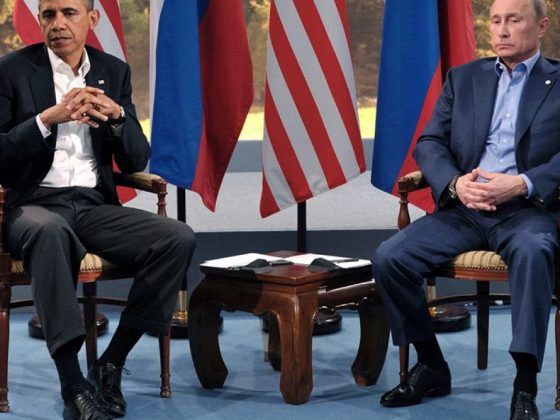More information has come out on the June 29 purge of the Russian Baltic Fleet command structure. First of all, the size of the purge is unprecedented, with around 50 high ranking officers being removed, including squadron and brigade commanders. Second, it is highly unusual for removals of top military officials (or of any senior officials in present-day Russia) to be public and openly for cause, rather than officially being described as being for health reasons or because the individual(s) were ready to retire.
Clearly, for the purge to be so large and so open, the misconduct in the Baltic Fleet had to be very serious and very widespread. Yulia Nikitina and Irina Tumakova from Fontanka.ru have published a long article documenting the faults attributed to the fleet’s now-former leadership. The condition of the fleet under Viktor Kravchuk had supposedly declined when compared to how it was under his predecessors, who received much less financing than he did in the last four years.
Nikitina and Tumakova discuss unconfirmed rumors about a collision between the recently completed Krasnodar diesel submarine and a Polish vessel (variously described as either an intelligence collection ship or Poland’s single remaining Kilo submarine). They also mention the poor state of housing for Baltic Fleet officers and obvious failures during recent exercises, such as when a submarine that was towed out to sea started to emit smoke rather than submerging and had to be returned to pier for repairs.
But if that was the extent of the problems, the leadership change is unlikely to have been so broad or so public. The most likely cause for the way this purge has been carried out is corruption. As Nikitina and Tumakova note, back in 2012 Kravchuk was tasked with creating the Kaliningrad defense region, a large joint military grouping that is to combine naval, aviation, and ground forces units under the command of the Baltic Fleet commander. At that time, Kravchuk was given command of strike aviation, air defense units, Iskander units (when located in Kaliningrad) and four infantry brigades that make up the 11th army corps.
The establishment of the 11th Army Corps required the construction of barracks, housing, and other facilities. The money that was allocated to these tasks was spent elsewhere or embezzled and the command proved to be unprepared to take in the additional troops. Furthermore, Kravchuk was known to have close ties with criminal “authorities” in Kaliningrad, including the “Amber baron” Viktor Bogdan, who, in addition to cornering the amber trade in the region seems to have also been involved in stealing diesel fuel from Baltic Fleet ships.
In other words, the Baltic Fleet purge appears to be a signal to other Russian military commanders (including mid-level ones) that corruption that has a negative effect on combat readiness will not be tolerated and will result in punishment far more severe than the usual honorable retirement given to senior officials who misbehave.
More details on Baltic Fleet shakeup, Russian Military Reform blog, June 30
– – – – –
Today, the Russian Ministry of Defense announced that the commander (Vice Admiral Viktor Kravchuk) and chief of staff (Rear Admiral Sergei Popov) of the Baltic Fleet were both fired for cause, as were several other unnamed senior officials at the fleet. This was the largest mass replacement of senior naval officials in the Russian Navy since the Soviet period. The official statement indicated that the removal was the result of serious shortcomings in the officers’ work that were revealed in a month-long review of the fleet’s performance that concluded on June 10. The official notice highlighted “serious shortcomings in organizing combat training, daily activities of their units, poor care of their subordinates as well as misrepresenting the real situation in their reports.”
Although Kravchuk has his defenders, it appears that his removal was the result of real shortcomings, although combined with external factors that made his removal relatively easy to carry out. Ilya Kramnik and Konstantin Bogdanov have done some very interesting reporting on this subject. They argue that these shortcomings include the unsatisfactory performance of Baltic Fleet minesweepers during exercises that took place in August 2015, combined with a low level of combat readiness among the fleet’s newest ships. The fleet’s four Project 20380 Steregushchiy class corvettes have not deployed to the Mediterranean Sea or Indian Ocean a single time in the nine years since the first of the ships was commissioned into the fleet. Furthermore, the ships have had more than their share of accidents and fires.
In addition to questions about the fleet’s combat readiness, the commanders were also criticized for inadequate living conditions for personnel stationed at the fleet’s bases. The commanders were given until this spring to correct the problems in both areas, and today’s announcement shows that the recently completed review found them still wanting.
Kravchuk’s enforced departure was smoothed by the replacement last winter of the Commander of the Russian Navy, Admiral Viktor Chirkov, who was removed in November 2015 officially because of health concerns. Chirkov, who had been Kravchuk’s patron in the navy for many years, was rumored to have also been removed due to complaints about inadequate readiness in some units — in his case naval infantry and support ships. These problems had come to a head because of increased requirements related to the Syrian Express operation for supplying Syrian and then Russian troops in Syria with military equipment.
Kramnik and Bogdanov note that although problems at the Baltic Fleet may have been particularly noticeable, they do not differ that much from problems evident in Russia’s other fleets. The reason that the leadership of the Baltic Fleet was chosen may be more a factor of the fleet’s relative lack of importance in present-day Russian operations. Therefore, today’s announcement may also serve as a warning to the commanders of the other fleets that they need to improve their work or face similar consequences.
Baltic Fleet commanders fired, Russian Military Reform blog, June 29.











